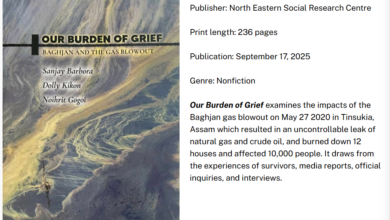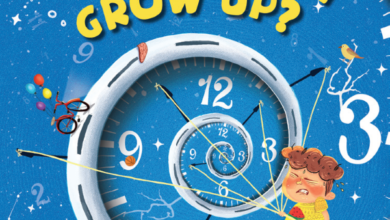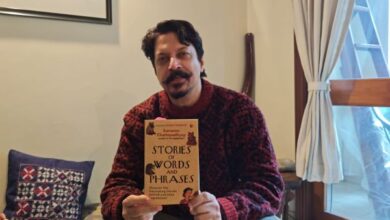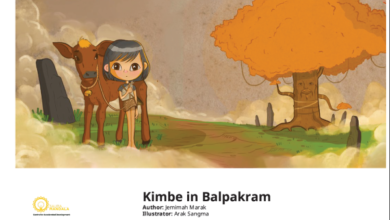An ordinary story of an extraordinary woman
Baby Halder's life is no different from many women in India, but her grit is an inspiration for many to come out of the vicious cycle of abuse & insult

 I started reading A Life Less Ordinary, Baby Halder’s autobiographical account, at a time when I was trying to find a way out for a woman I had known for almost a decade. She is a single mother of three children, the oldest of whom is 21 years old, and works as a domestic helper in Shillong. Her husband was an alcoholic and died about five years ago. His death did not end the troubles for her. Living with an abusive alcoholic half-brother, a drug-addict son and a mentally challenged sister is not an easy task.
I started reading A Life Less Ordinary, Baby Halder’s autobiographical account, at a time when I was trying to find a way out for a woman I had known for almost a decade. She is a single mother of three children, the oldest of whom is 21 years old, and works as a domestic helper in Shillong. Her husband was an alcoholic and died about five years ago. His death did not end the troubles for her. Living with an abusive alcoholic half-brother, a drug-addict son and a mentally challenged sister is not an easy task.
The story of this woman in Shillong is no different from several others in the northeastern state. Her maladies are no less than Baby’s. But what makes Baby different from her and many other women suffering in silence is the grit and the strong urge to be an independent woman.
Even a decade after it was first published in Hindi and Bengali, Baby’s story remains an inspiration for many women in India for whom domestic abuse and abandonment are norms.
Baby always wanted to study, and her mother encouraged her to attend school. However, when she abandoned the family and left with the youngest son, Baby’s life changed forever. Attending school became erratic and finally stopped. Her struggles started at home with her father, a man of mercurial temperament, making life miserable to a great extent.
Baby was married off even before she could understand womanhood. Another episode of torture, humiliation and drudgery began in her life.
Despite such hardships, Baby never gave in to society’s conventions and parochial attitudes of the people around her. Her judgement was never overshadowed by prejudices. So, when her husband forbade her from visiting a particular family in the neighbourhood, she refused to do so. She also questioned male dominance in society. For someone so young, such courage was laudable.
Story of transformation
A Life Less Ordinary is the story of Baby’s transformation, from an innocent girl to an indomitable spirit, from a victim to a fighter. While reading the book, one would wonder how many wounds Baby must suffer before she gives up on life. She does not give up, and instead, turns the tables on society and everyone who never believed in her.
While Baby’s story may be ordinary, her transformation is not. Her migration from West Bengal to Delhi, and her strong will and urge to be financially independent, brings Baby to the doorstep of Tatush, the man who helped Baby change the course of her life.
Tatush, a fatherly figure in Baby’s life, encouraged her to read and write. She found a way to express her pent-up anguish. Finally, she was doing what she always wanted to — educating herself and expanding her vision through books.
Despite filial restrictions and social shackles, Baby has always been an independent person. She never confined herself to the narrowness of the alleys that defined her physical existence or the filth that surrounded her within and without her husband’s house. Unlike other women in the neighbourhood, Baby never let her identity be defined by a man who never respected her and looked for an opportunity to be empowered in her own way.
Defined by simplicity
What makes A Life Less Ordinary a narration extraordinaire is its simplicity. It is a difficult task to tell the story of one’s life and present the complexities of human existence in words which do not weigh you down and make reading a laborious task. But for Baby, simplicity came naturally, for she did not carry the baggage of intellectuality and the ersatz aura of being erudite. Her life experiences made her stronger and wiser each day. The complex philosophies that usually dominate a scholar’s thoughts and words disintegrated into simple realisations and motivations in Baby’s life. These she used in shaping her thoughts and words.
The simplicity in the narration is what makes A Life Less Ordinary an interesting read and an inspiring story. The book was first published in Hindi and Bengali as Alo Andhari. It was later translated into English by Urvashi Butalia. Though as a Bengali, I hope to read Baby’s story in the language that she speaks to better understand the nuances of emotions she felt at each stage of her life, the sentiments are not lost in translation. At times, Baby seems to be so close to your life and someone you have known for years, and then again, she becomes an entity beyond reach. This is probably because not many women can show the determination that she did. Her exemplary life is extraordinary.
At the end of the book, I did not find a solution for the woman I know in Shillong. Instead, I realised that every individual, including her, has to find the solution herself/himself, like Baby did. I can try to be the Tatush in her life, but first, I must suggest the book to her (she reads English) to allay her apprehensions.
Book: A Life Less Ordinary; Author: Baby Halder, Translated by Urvashi Butalia; Publisher: Zubaan; Pages: 173; Price: Rs 295





